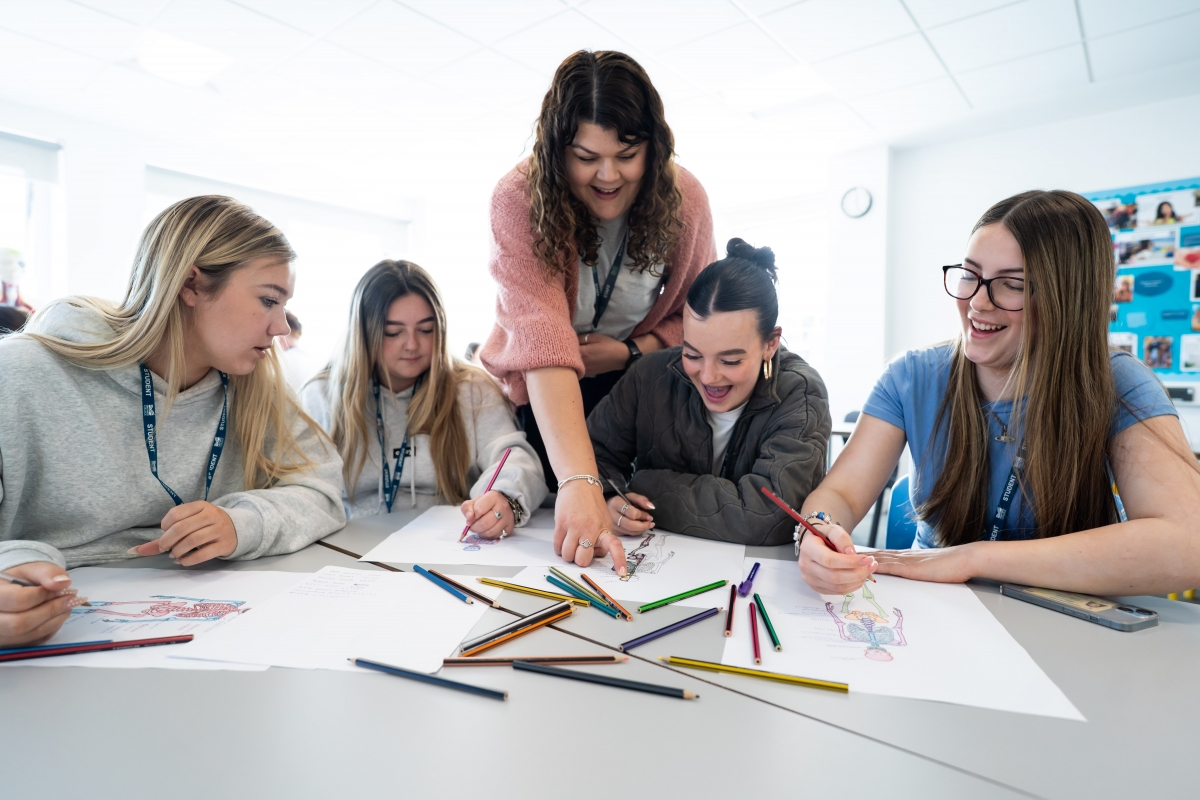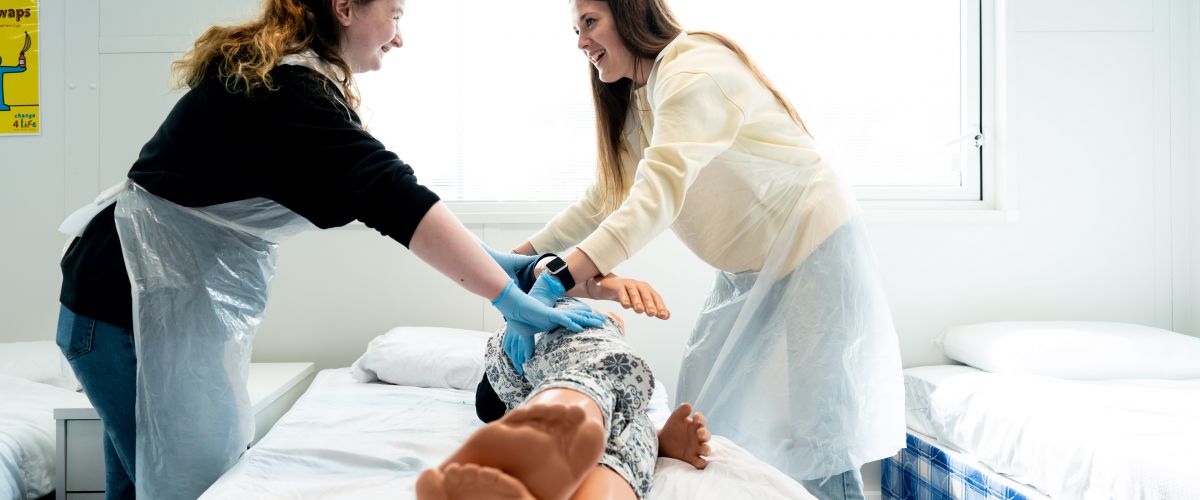BTEC Level 3 National Extended Diploma in Health & Social Care
A career in health & social care is challenging, rewarding, interesting and exciting, requiring you to have a variety of skills, knowledge and expertise to succeed. The Pearson BTEC Level 3 National Extended Diploma in Health and Social Care has been designed to be the only qualification in a two-year full-time study programme. It is an ideal pathway for students aiming to progress into a health and social care related degree or higher-level apprenticeship. It is equivalent to 3 A Levels on completion. BTEC Nationals provide transferable skills that universities value such as the ability to learn independently, research actively and methodically and to give presentations and be active group members.
Key information
Education & Care / Full Time / Level 3 Extended Diploma

Why choose this course?
This course provides a solid foundation for careers in healthcare, social work, and allied health professions. It integrates theoretical knowledge with real-world applications, preparing students for both higher education and employment. With a growing demand for skilled professionals, this course offers a rewarding path to making a positive impact on people's lives.
What will I learn?
You will study 13 units over 2 years, this includes four externally assessed units:
Year 1:
· Human Lifespan and Development (exam) – PIES and factors affecting growth and development, interventions and the different professionals providing care and treatment
· Working in Health and Social Care (exam) – Explore what it is like to work in the health and social care sector, including the roles and responsibilities of workers and organisations.
· Meeting Individual Care and Support Needs – Focus on the principles and practicalities that underpin meeting individuals’ care and support needs.
· Principles of Safe Practice – Explore the importance of safe working practices, safeguarding procedures and responding to emergency situations in health and social care settings.
· Scientific Techniques for Health Science – Study a range of laboratory skills, including analysis of samples and microscope use to understand changes in cell features and aseptic prevention of cross-contamination.
· Understanding Mental Wellbeing – Explore the nature of and strategies to promote mental wellbeing and mental health, and the impact of mental ill health on individuals.
Year 2:
· Anatomy and Physiology (exam) – The structure, organisation and function of the human body, and anatomical and physiological systems and medical research related to disorders affecting these systems.
· Enquiries in Current Research in Health and Social Care (exam) – Explore the methodologies of contemporary research and investigate the implications for health and social care practice and services.
· Work Experience in Health and Social Care – Explore the benefits of work experience, carry out and reflect on a period of work experience and plan for personal and professional development. This unit has 100 hours of mandatory work experience attached to it.
· Promoting Public Health – Explore the aims of public health policy and the current approaches to promoting and protecting health and encouraging behaviour change in the population.
· Physiological Disorders and their Care – Explore types of physiological disorders, the procedures for diagnosis and the development of a treatment plan and provision of support for service users.
· Microbiology for Health Science – Cover the key microbiological concepts relevant to the field of health science and their role in manufacture of pharmaceutical products and medical diagnostics.
· Caring for Individuals with Dementia – Explore conditions leading to dementia, their causes, symptoms, the effects on individuals and the support required to ensure independence and dignity for individuals.
Assessment Arrangements
Your achievement in this subject is dependent upon excellent attendance, punctuality and effort. You will learn in a friendly atmosphere, using a variety of assessment methods including: exams, written assignments, portfolio and project work and discussions.
Information & Support
Throughout the course you would be required to complete at least 15 hours of independent study time per week. To support you in this you will have access to study materials online and will be provided with appropriate textbooks. An experienced team of lecturers, many of whom have worked in the health and social care profession, will support your learning. You will need to prepare to work hard independently, carry out indepth research and use a variety of information sources.
Throughout the programme, lecturers and personal development tutors will actively encourage you to develop as individuals and provide ongoing pastoral and academic support. An important part of this course is work experience. You will have the opportunity to be placed in a variety of settings totalling a minimum of 100 hours which is a mandatory part of the course. Previous settings have included hospitals, residential homes for the elderly and day centres for clients with mental health problems or learning disabilities. Our dedicated Work Placement Officer will support you in finding a suitable placement that matches your interests and locality. Please note: A clear DBS certificate will be required in order to complete this course. The college will support you in applying for this and will cover the cost of this.
In order to progress onto a university course in Nursing, Midwifery or the Allied Health Professions, you will also need a Grade 4 in GCSE Science. It may be possible to do this alongside your course if necessary.
What will I need?
You will need four GCSEs at grade 4 including a 4 in English (Lang or Lit.) and / or Maths.
Whilst it is possible to re-take GCSE English and Maths at Callywith College, students can only study one of these subjects alongside our Level 3 courses and therefore all students must have at least one grade 4 in English or Maths at the point of enrolment (other course specific entry requirements apply).
Where will it take me?
Successful completion of the course will mean learners are fully prepared for a range of health and social care degree or higher level training programmes such as: Nursing, Midwifery, Paramedic Science, Social Work, Physiotherapy, Occupational Therapy, Speech Therapy and Social Work as well as subject degrees such as Sociology, Psychology or Health and Social Care.
Additional Information
Awarding Body: Pearson Level 3 BTEC National Extended Diploma
To obtain more information about this course, please call: 01208 224000 or email enquiry@callywith.ac.uk





